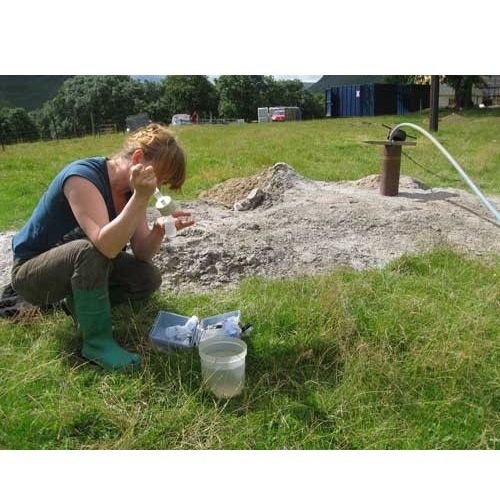The mysterious microbial ecosystem beneath our feet: Unravelling groundwater microbiology

Groundwater constitutes 99% of accessible freshwater on the planet and is a vital resource for public water supply in the UK. It contains a little-studied indigenous microbial ecosystem responsible for the cycling of nutrients and a food-source for blind subterranean macroinvertebrates. These ecosystems are increasingly under pressure due to population growth, urbanisation, and climate change, which can modify the assemblage. There is also the potential that groundwater ecological monitoring could become mandated in the UK, with it already enshrined in legislation in Australia and Switzerland. We need to undertake the first investigation of the UK’s subterranean microbial ecosystem to understand its current status and controls.
This project aims to explore the:
- The abundance of microbes and their activity within our UK aquifers;
- Investigate the range of microbial diversity; and
- Understand environmental controls on both bacterial abundance and diversity.
The student, collaborating with partners (including Thames Water), will collect samples from a representative range of UK groundwater supplies. Samples will be analysed using flow cytometry for microbial cell abundance and activity. These data can then be scaled up using our hydrogeological understanding to provide abundance and activity estimates at the aquifer and national scale.
High throughout sequencing of the 16S and 18S rRNA genes will be used to characterise the molecular diversity of the various types of microbes. Linkages to environmental variables will be assessed using existing national groundwater hydrochemical datasets and analysis of new samples. Groundwater age will also be investigated as an environmental control as we have groundwater ranging from modern to many thousands of years old in the UK.
The research student will integrate into the BGS/CEH research teams in Wallingford, Oxfordshire where they will work alongside a broad spectrum of scientists and other students, have access to excellent research infrastructure, and be eligible for UKRI training.
Eligibility
Applicants must have a minimum of a 2:1 class degree in geography, geology, microbiology or environmental sciences or a masters degree in a relevant field.
Enquiries
For further enquiries please contact James Sorensen (jare1@bgs.ac.uk).
